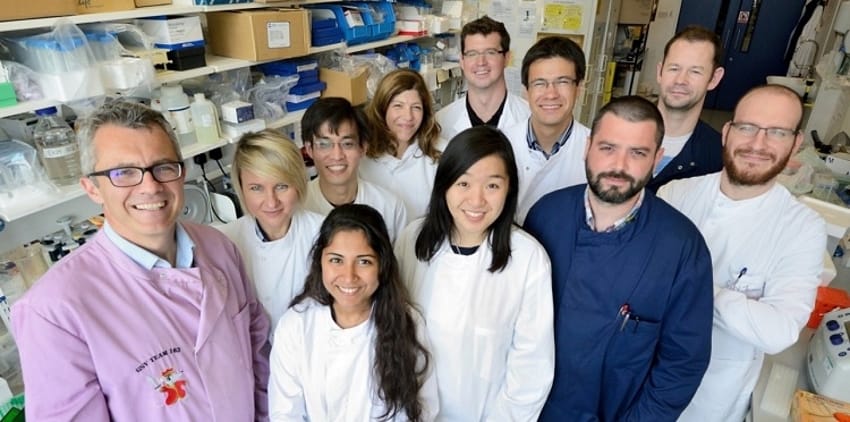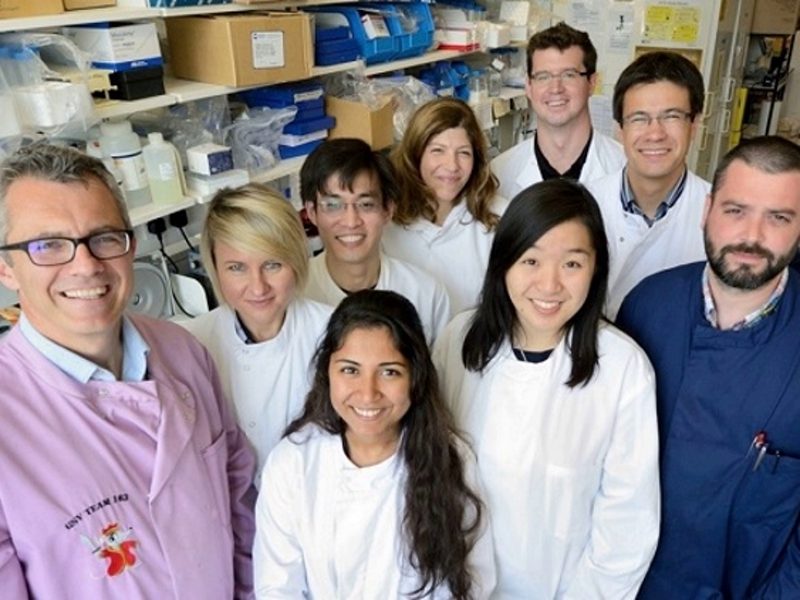
Two Greek scientists have led a team of researchers who have found an active ingredient in eye drops that shows great potential for treating aggressive forms of blood cancer.
Researchers from the University of Nottingham worked on the research led by Dr George Vassilou and Dr Konstantinos Tzelepis and other collaborators who found that the compound, which targets an essential cancer gene, could kill leukaemia cells without harming non-leukemic blood cells.
Acute myeloid leukaemia (AML) is a form of blood cancer that affects people of all ages, often requiring months of intensive chemotherapy and prolonged hospital admissions. It develops in cells in the bone marrow crowding out the healthy cells, in turn leading to life-threatening infections and bleeding.
Mainstream AML treatments have remained unchanged for over 30 years, with the current treatment being chemotherapy, and the majority of people’s cancer cannot be cured. A subtype of AML, driven by rearrangements in the MLL gene has a particularly bad prognosis.
In a new study, Sanger Institute researchers and their collaborators set out to work out how inhibition of SRPK1 can kill AML cells and whether it has therapeutic potential in this disease. The team found that the compound strongly inhibited the growth of several MLL-rearranged AML cell lines, but did not inhibit the growth of normal blood stem cells. They then transplanted patient-derived human
“We have discovered that inhibiting a key gene with a compound being developed for an eye condition can stop the growth of an aggressive form of acute myeloid leukaemia without harming healthy cells. This shows promise as a potential approach for treating this aggressive leukaemia in humans,” said Dr Vassiliou, joint leader of the research from the Wellcome Sanger Institute and the Wellcome-MRC Cambridge Stem Cell Institute
“Our study describes a novel mechanism required for leukaemia cell survival and highlights the therapeutic potential of SRPK1 inhibition in an aggressive type of AML. Targeting this mechanism may be effective in other cancers where BRD4 and SRPK1 play a role, such as metastatic breast cancer,” added Tzelepis, joint lead author from the Wellcome Sanger Institute and University of Cambridge
“When Dr Vassiliou told me that SRPK1 was required for the survival of a form of AML, I immediately wanted to work with him to find out if our inhibitors could actually stop the leukaemia cells growing. The fact that the compound worked so effectively bodes well for its potential development as a new therapy for leukaemia. It will take some time, but there is real promise for a new treatment on the horizon for patients with this aggressive cancer,” added Professor David Bates, from the University of Nottingham and co-founder of biotech company Exonate, which develops eye drops for retinal diseases.
*Source: Sanger.ac.uk


